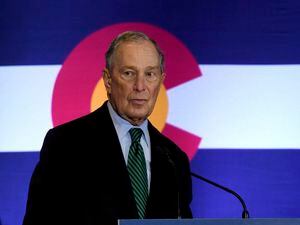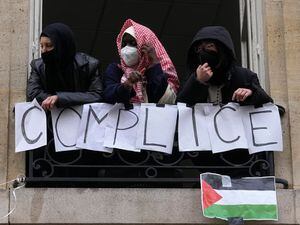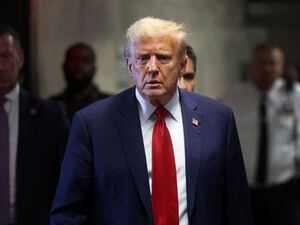Bloomberg says next US president should scrap all fossil fuel subsidies
The Democratic presidential contender was speaking at the United Nations climate conference in Madrid.

American billionaire and Democratic presidential contender Michael Bloomberg has said the next US leader should halt fossil fuel subsidies altogether.
Mr Bloomberg, who launched his campaign less than three weeks ago, is attending a United Nations global climate conference in Madrid that is kicking into high gear.
Ministers from nearly 200 countries are arriving to tackle some of the tough issues negotiations could not resolve over the past week, including finalising the rules for international carbon markets that economists say could drive down emissions and help poor countries cope with rising temperatures.
Opening an event on sustainable finances organised by summit host Spain, Mr Bloomberg said: “The next president of the United States should end all subsidies for fossil fuel companies and fossil fuel extraction, and that includes tax breaks and other special treatment.
“He or she should reinvest that funding into clean energy, which will also create a lot of new jobs.”
The 77-year-old businessman and former New York mayor is expected to share the results of his private push to organise thousands of US cities and businesses to abide by the terms of a global climate treaty that the Trump administration is working to abandon.
“Americans are willing to continue to work even with a climate change denier in the White House,” Mr Bloomberg told a room packed of journalists and officials.
“The White House matters, but sometimes not too much,” he added.

Unlike at many past climate summits, few heads of government are joining the talks in Madrid. The US has sent a career diplomat, ambassador Marcia Bernicat, as head of its delegation.
John Kerry, secretary of state under the last Democrat administration, is also attending events on the sidelines of the Madrid conference, and said the absence of any representative from the White House at “speaks for itself”.
“It’s an absence of leadership,” he told the Associated Press. “It’s a tragedy.”
Most other countries are sending environment ministers or other senior officials instead of prime ministers or presidents, worrying some observers.
“It shows that there has not yet been an internalisation of the emergency situation that we are in, that so few heads of state are coming to Madrid and ready to roll up their sleeves and do what it takes to actually respond to the science,” said Jennifer Morgan, executive director of Greenpeace International.
She also accused some governments, such as Brazil and Saudi Arabia, of trying to weaken the agreements, and called on the European Union to work with vulnerable nations to counter those efforts.
Environmental campaigners are hoping the EU will present an ambitious plan this week for cutting emissions in the medium and long-term that would send a message of hope to weary negotiators in Madrid.
The new head of the European Commission, Ursula von der Leyen, has backed a call for the EU to stop all net emissions of greenhouse gases by 2050.





